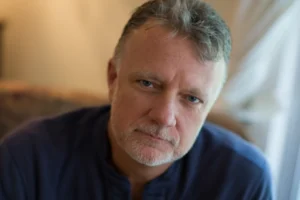Search Posts
Recent Posts
- Writer Herb Weiss’ 45 years of Advocacy on Aging now Archived at Rhode Island College Library Special Collection June 23, 2025
- Providence Biopharma, Ocean Biomedical, Notified of Termination of License Agreements with Brown University, RI Hospital June 23, 2025
- Networking Pick of the Week: Early Birds at the East Bay Chamber, Warren, RI June 23, 2025
- Business Monday: Dealing with Black and White Thinking – Mary T. O’Sullivan June 23, 2025
- Rhode Island Weather for June 23, 2025 – Jack Donnelly June 23, 2025
Categories
Subscribe!
Thanks for subscribing! Please check your email for further instructions.

The Media. Living in the shadows of the last tragedy – Michael Morse
by Michael Morse, to RINewsToday
“The Media” are people doing a job. I have not been very kind when complaining about the news of the day and how it is reported. I try to remember that they, too are simply trying to get through the days and events as best they can.
News reporters and their camera crew cover the same incidents we respond to, get in their vehicle and move on to the next one, never having a chance to process what they witness. Talking helps, but my guess is there will be other stories to cover before the horrific event of the day fades into the shadow of the next tragedy. But the memories never really go away. They linger, and wait for an opportunity to join the rest of the nightmarish sounds and images that have accumulated, taking space in our minds where other, better things belong . . .
The news was on when I got home after a long shift; a 3-year-old boy had drowned in a swimming pool. The efforts of the police, firefighters and EMTs were not enough to save him. A neighbor was interviewed, and she said all of the usual things. At the end of the short segment the reporter, a young guy whom I had seen a number of times over the last year, stood in front of the day care, alone, and summed it up.
I already knew a boy was dead. I did not want to know about his parents, his friends, what school he went to, if he had a brother or a sister at home. I did not want to see his parents when they learned what had happened. I had the luxury of focus: pinpoint on the problem, know as little about the life that was lost, and get up the next day and do it again with a clear head.
News people are trained to have a stone face while telling the world what happened, and to keep their emotions in check. He interviewed the neighbors, tried to talk with the parents, was talking with our chief, piecing together the story. And when all was said and done, it was just him and the camera on a lonely street where a little kid had just died.
What he learned showed on his face. His sadness may not have been visible to most, but I saw it, and once I did, I couldn’t see much else. He was at the hospital when the family of the boy learned the news, and he heard the scream of the boy’s mother.
Those screams must be echoing in that reporter’s head still.
He did not have the luxury of knowing that he made a valiant attempt to save a life. He did not have the understanding and respect of the community, or a mandatory PTSD (post traumatic stress debriefing) waiting. He had another story to cover in a district that spanned three states. He is in the business of uncovering the truth, and the truths that reporters uncover are heartbreaking.
Like responders, the news crews are simply people doing their jobs, and while the police, fire and EMTs are seen as heroic, reporters are often forgotten, or worse.
Being on the outside looking in will never endear you to the group you are peering at, no matter how well you do your job. We are a voyeuristic society that oddly enough loves its privacy. When it is your job to pick away at that privacy, there is bound to be some irritation.
In telling the story, the reporters give a lot of themselves, and the pieces that they lose are difficult to get back. First responders know how disillusionment and cynicism can sneak up on us, and disappointment in society can permeate our consciousness if we allow it. We know that “the job” can take more than it gives, and that a little bit of our kindness, empathy and innocence is lost on every call. But we have something that the people who tell our story do not; each other.
An informal support group exists between people in the news industry. There is commiseration, camaraderie and an occasional after-work venting session, but nothing formal. By admitting vulnerability, the reporters and support staff expose themselves to the scrutiny of their peers.
There isn’t a more competitive market than the news. Any chink in their armor can be perceived as weakness, and a weak reporter is a reporter who is going nowhere.
The people covering the news need to know that they are appreciated, and it is OK to get some help when the weight of the news they cover becomes too heavy.
There is no shame in that: Sometimes the soul just needs a break.
___
Read more article by Michael Morse, here: https://rinewstoday.com/michael-morse/

Michael Morse, mmorsepfd@aol.com, a monthly contributor is a retired Captain with the Providence Fire Department.
Michael Morse spent 23 years as a firefighter/EMT with the Providence Fire Department before retiring in 2013 as Captain, Rescue Co. 5. He is an author of several books, most offering fellow firefighter/EMTs and the general population alike a poignant glimpse into one person’s journey through life, work and hope for the future. He is a Warwick resident.
.

